Agenda
Times are subject to change.
Pick up your name badge then enjoy breakfast and networking before the program begins.
Pick up your name badge then enjoy breakfast and networking before the program begins.
This one-on-one looks at how the Defense Department’s Critical Technology Office is working to fill the urgent needs of today and tomorrow: hypersonics, quantum & edge computing, next-gen chip design, AI, and more. How is the U.S. competing against China in these fields, and how can we step it up?
This one-on-one looks at how the Defense Department’s Critical Technology Office is working to fill the urgent needs of today and tomorrow: hypersonics, quantum & edge computing, next-gen chip design, AI, and more. How is the U.S. competing against China in these fields, and how can we step it up?
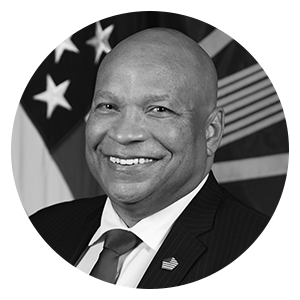
Maynard Holliday
PTDO Assistant Secretary for Critical TechnologiesOffice of the Under Secretary of Defense for Research and Engineering

Patrick Tucker
Science & Technology EditorDefense One
Underwriter


Kevin Mulligan
DoD Policy Lead
Andrew Werner
Group Publisher, Federal BrandsGovExec

Missiles that fly five times the speed of sound, harnessing the power of light for futuristic weapons—the United States is close to revolutionary breakthroughs in both areas. Peterkin and Weber will lay out how the Defense Department is conquering core physics challenges to put new, world-changing capabilities into the field
Missiles that fly five times the speed of sound, harnessing the power of light for futuristic weapons—the United States is close to revolutionary breakthroughs in both areas. Peterkin and Weber will lay out how the Defense Department is conquering core physics challenges to put new, world-changing capabilities into the field

Dr. Frank Peterkin
Principal Director, Directed EnergyOffice of the Assistant Secretary of Defense for Critical Technologies
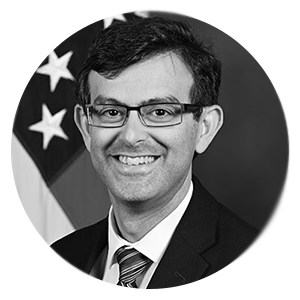
Jarret Lafleur
Senior Advisor to the Principal Director for Hypersonics for Strike Systems Strategy and PolicyOffice of the Under Secretary of Defense for Research and Engineering, Department of Defense

Patrick Tucker
Science & Technology EditorDefense One
Underwriter

Future battlefields will focus on the proliferation of asymmetric threats. Threats that are highly distributed, highly networked, and based on consumer electronics. Epirus is a defense technology company specializing in electronic warfare that can move at the speed of technology to deliver victory in the age of asymmetric warfare.
Future battlefields will focus on the proliferation of asymmetric threats. Threats that are highly distributed, highly networked, and based on consumer electronics. Epirus is a defense technology company specializing in electronic warfare that can move at the speed of technology to deliver victory in the age of asymmetric warfare.

Andy Lowery
CEOEpirus

Daniela Fayer
Group Publisher, DefenseDefense One

Underwriter

Time and resources have been spent exploring the use of 5G within the DoD.
But there is a divide to cross in order to fully understand the value and impact 5G can bring to a military installation. How can the military look to utilize the types of private networks that industry already has implemented in support of use cases around training, logistics, and on-base public safety?
Defense One sits down with Dominic Bonaduce, Product Strategy Senior Manager at Verizon, to discuss how learnings can be found within the business community to see what private networks are doing in sports, logistics, and emergency response that mimic use cases within the military.
Time and resources have been spent exploring the use of 5G within the DoD.
Read More
Dominic Bonaduce
Senior Product Strategy ManagerVerizon

Daniela Fayer
Group Publisher, DefenseDefense One

From sensor to shooter, artificial intelligence has the potential to make soldiers and commanders smarter. But employing the technology across the Army is a challenge. In this panel, our speakers will outline the Army’s ambitious plan to make AI as ubiquitous as ChatGPT, the challenges to scaling, and potential outcomes for operators.
From sensor to shooter, artificial intelligence has the potential to make soldiers and commanders smarter. But employing the technology across the Army is a challenge. In this panel, our speakers will outline the Army’s ambitious plan to make AI as ubiquitous as ChatGPT, the challenges to scaling, and potential outcomes for operators.
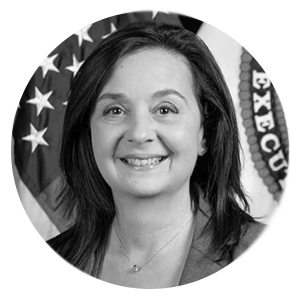
Jennifer Swanson
Deputy Assistant Secretary of the Army (Data, Engineering & Software)U.S. Department of the Army

Florent Groberg
Vice President, Strategy and Optimization GroupAE Industrial Partners

Lauren Williams
Senior EditorDefense One
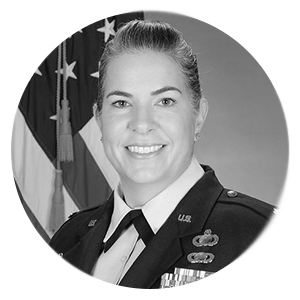

If the U.S. military is going to help Ukraine defeat Russia and deter Chinese adventurism, it will need to rush new asymmetric capabilities, such as hundreds of thousands of cheap, high-performance drones, to the front lines far faster and cheaper than it builds and deploys weapons today. That means overcoming bureaucratic obstacles. This panel discusses ways that the Defense Department is reaching out to non-traditional players and international partners, using new mechanisms and authorities to bring rapid capacity online.
If the U.S. military is going to help Ukraine defeat Russia and deter Chinese adventurism, it will need to rush new asymmetric capabilities, such as hundreds of thousands of cheap, high-performance drones, to the front lines far faster and cheaper than it builds and deploys weapons today. That means overcoming bureaucratic obstacles. This panel discusses ways that the Defense Department is reaching out to non-traditional players and international partners, using new mechanisms and authorities to bring rapid capacity online.

Lt. Col. Jennifer Warren
Spark Division ChiefAFWERX

Sunmin Kim
Chief of PolicyDefense Innovation Unit
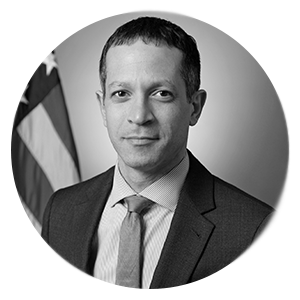
Michael Horowitz
Deputy Assistant Secretary of Defense for Force Development and Emerging CapabilitiesOffice of the Under Secretary of Defense

Patrick Tucker
Science & Technology EditorDefense One
Underwriter


Daniel Gohl
Chief Technology & Strategy Officer for US SLEDHP

Alex Treadway
Vice President and Associate PublisherRoute Fifty

Underwriter


Julie Vida
Vice President, Growth, Defense SectorManTech

Quantum computing promises a new way to manipulate data, a field that could change our approaches to encryption, cybersecurity, communications, sensing, and and even artificial general intelligence, the next phase of human-like AI. It’s an area in which the United States finds itself in direct competition with China.
Biotechnology, similarly, is on the cusp of a new era of radical progress thanks, in part, to the role of AI in understanding genomic information. But this is also an area where China has invested heavily and by some measures is well ahead.
This panel looks at the information environment around these two critical science areas and reveals how DOD is pursuing breakthroughs that will reshape the future of computing and bio-security.
Quantum computing promises a new way to manipulate data, a field that could change our approaches to encryption, cybersecurity, communications, sensing, and and even artificial general intelligence, the next phase of human-like AI. It’s an area in which the United States finds itself in direct competition with China.
Biotechnology, similarly, is on the cusp of a new era of radical progress thanks, in part, to the role of AI in understanding genomic information. But this is also an area where China has invested heavily and by some measures is well ahead.
This panel looks at the information environment around these two critical science areas and reveals how DOD is pursuing breakthroughs that will reshape the future of computing and bio-security.
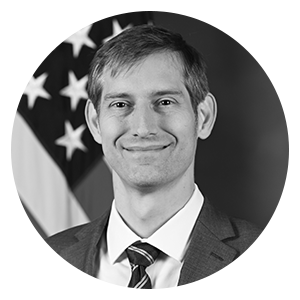
John Burke
Principal Director, Quantum ScienceOffice of the Assistant Secretary of Defense for Science & Technology

Katherine Sixt
Principal Director, BiotechnologyOffice of the Assistant Secretary of Defense for Science & Technology

Patrick Tucker
Science & Technology EditorDefense One

David Hutchins
Senior Industry AnalystForecast International
A one-on-one discussion with Dr. Stefanie Tompkins on DARPA’s world-changing research opportunities in future space startups, never-before-seen airplane designs, the future of artificial intelligence for scientific discovery, edge-computing, 3-D printing new weapons under fire and the research race between the United States and China.
A one-on-one discussion with Dr. Stefanie Tompkins on DARPA’s world-changing research opportunities in future space startups, never-before-seen airplane designs, the future of artificial intelligence for scientific discovery, edge-computing, 3-D printing new weapons under fire and the research race between the United States and China.
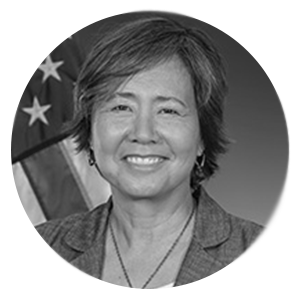
Dr. Stefanie Tompkins
DirectorDefense Advanced Research Projects Agency (DARPA)

Patrick Tucker
Science & Technology EditorDefense One

Patrick Tucker
Science & Technology EditorDefense One

